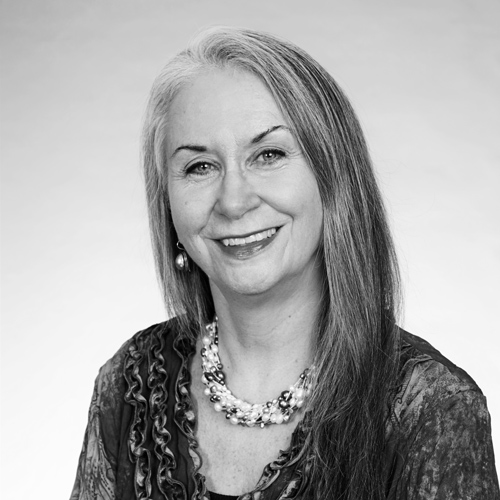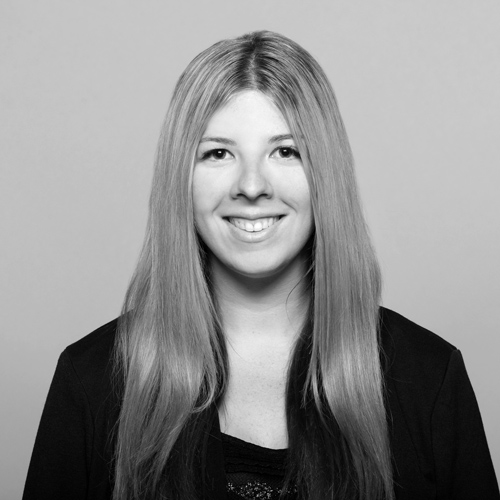Kevin Marks has been everywhere. And that’s a good thing, because it means he’s excelling in his position, and that Roche Molecular Solutions is expanding.
“Roche is a global organization with over 90,000 employees,” he says. “Now with Roche Molecular Solutions having about fourteen locations all around the United States and abroad, there’s quite a bit of travel incorporated into my life at this point. Two weeks ago, I was in Basel, Switzerland, and Mannheim, Germany. Then, I went home for the weekend. From there, I spent two days in Branchburg, New Jersey, came home for the weekend again, then came to Tucson for a day. After that, I’ll go home for a couple of days, and we’ll do four days at Disneyland—that one’s personal.”
As vice president and general counsel—head of legal and compliance for Roche Molecular Solutions, Marks’s role is to shepherd the legal function of the Bay Area arm of Roche Diagnostics, a Swiss-based company specializing in the development and manufacturing of groundbreaking healthcare diagnostic products, services, and technologies. While risk assessment and analysis is certainly par for the course, Marks views the general counsel role as that of a strategic business partner who furthermore should be well-versed in assembling specialized teams as well as managing people.
“My expectation is that I don’t have to be the be-all and end-all for the corporation’s legal advice,” he says. “I like to bring people into the organization who are either subject matter experts or just really hardworking, intelligent people that like to take the ball and run with it.”
Marks and his team also play an instrumental role in integrating new acquisitions into the business, often acting as the first point of contact when establishing relationships between the companies. “I have a strong litigation background; litigation is confrontational,” Marks says. “But with M&A, I like to look at it as a courting ritual. You need the arranged marriage to both fit together and to cement the deal.”
It’s also crucial, Marks explains, to thoroughly vet the intellectual property (IP) landscape of potential acquisitions by asking pointed questions. What does the existing patent portfolio look like? How much protection does the company have for its proprietary technology? Are there any pending disputes? This allows the parent organization to shirk burdensome potholes and avoid any unforeseen and unnecessary litigation. “You try to do as deep a dive as possible in the time period that you’re given before you have to go ahead and do the deal,” he says.
The second—and most important—aspect of the M&A process, according to Marks, is making it work. “You have transactional attorneys who may simply get the deal done and then walk away,” he continues. “I do work with our outside firms on the deal-making aspect, but I’m also looking to craft something that I know is going to be workable once we get past that to the integration phase.”
This means that once the deal has been successfully navigated, his team must determine how to best manage the legal activities of the new company, as well as how they can provide some of the existing tools, technologies, and processes that Roche Molecular Solutions utilizes.
“As lawyers, we may not be directly working in the lab, but the technology and medicines that we create within Roche save people’s lives. You get excited about that, and it becomes infectious so you can use it to build talent.”
But the intent isn’t simply to revamp all existing infrastructures. “We’re also open to seeing how the other company is doing things,” Marks explains. “Specifically, if we were to buy a more mature company—one that has more established legal process-es—we’d be very open to seeing what’s already in place. I’m always advocating to my folks that we need to be doing whatever is the best thing. Innovation doesn’t always lie with our core business. Innovation can come from the way that we do our business from the legal side.”
Most of the time, though, Marks works to acquire early-stage companies for the organization. In that case, the challenge is to usher them into maturity within an industry such as medical diagnostics, which is of course prone to stringent government regulation. “Typically, these companies are small in scale and haven’t been confronting the FDA,” he says. “But the whole expectation with us is that we’re eventually going to market products, and largely, our marketed products fall into an FDA-regulated scheme. The question then becomes, ‘How do you bring them along without destroying or slowing down the innovation, but at the same time bring them into an increasingly regulated environment?’”
Keeping the company and its entities on the cusp of creativity is vitally important given that Roche Molecular Solutions operates from Silicon Valley’s hot spot of ever-evolving technological advancement. Though challenges abound, the potential for life-changing medical discoveries ultimately far outweighs them. From a business perspective, San Francisco’s surplus of talent, especially in the life sciences and biotechnology fields, leads to steep competition as well as the need for those companies to offer prospective employees increasingly luxe incentive packages. And with the area’s high cost of living, relocating talent from other areas becomes less viable.
“Lawyer skills can sometimes transcend an industry and go to many different spaces, so you also have to compete across many different industries for talent,” Marks explains. Fortunately, this is balanced by the unique and exciting opportunity for attorneys to establish legal paths and precedents related to the regulation of uncharted technology.
Overall, the solution for the Roche organization is to properly communicate the undeniably humanitarian points of the organization’s story. “Not to disparage high-tech or software companies—because everyone’s got something good to offer—but in working for a company like ours, what you get is a higher purpose,” Marks says. “As lawyers, we may not be directly working in the lab, but the technology and medicines that we create within Roche save people’s lives. You get excited about that, and it becomes infectious so you can use it to build talent.”
Marks emerged in the legal arena after initially studying international affairs and Russian language as an undergraduate. After traveling to the then-dissolving Soviet Union and also working in marketing for an independent oil reseller in Philadelphia, he realized his talents were in communication. He also felt a strong urge to manifest meaningful change for people. “I saw how the law could bring together what I thought were my skills and talents and put me in a position where I could work well for others,” he says.
He credits a personalized, targeted style of mentorship—a strategy he employs to this day for others as general counsel—in helping him establish the competence to achieve success. “I’ve always personally been about trying to recognize where I have certain talents to benefit society and to make sure they’re being utilized,” he says. “Each time I was faced with a particular situation or what I’d consider a major fork in the road, having the ability to bounce ideas off a mentor to get perspective was a huge asset.”
Ultimately, this mind-set will form highly successful organizations of people who are best suited to perform their jobs. “We’re the global market leader when it comes to molecular diagnostics, and I think that’s largely due to the nature and character of the people that we have within our organization,” Marks says. “If we were a completely bureaucratic organization, we wouldn’t have been able to attain—and retain—that status.”
Saving Lives from Silicon Valley
Silicon Valley functions as an unparalleled knowledge hub that can spark convenient collaborations due to blurring industry lines. For example, manufacturers of computer components such as semiconductors and microchips have become increasingly interested in the gene-sequencing, biomedical arenas, and vice versa.
For companies such as Roche, the Bay Area acts as a beneficial incubator that can eventually lead to advancements that save lives around the world.
***
Hughes Hubbard & Reed LLP:
“We are better lawyers and counselors because of our work with Kevin. He leads by example, empowers his outside counsel to innovate and achieve excellence, and knows the value of his cases (both as plaintiff and defendant).”
—Stephen S. Rabinowitz, Partner
***
WilmerHale:
“What sets Kevin apart is his deep knowledge of Roche’s business and strategic objectives as well as his ability to find practical solutions to difficult problems. He is a pleasure to work with.”
—Bob Gunther, Partner


